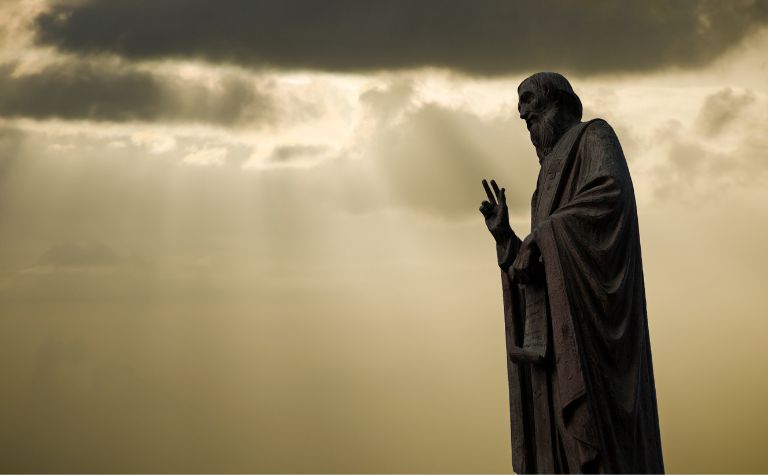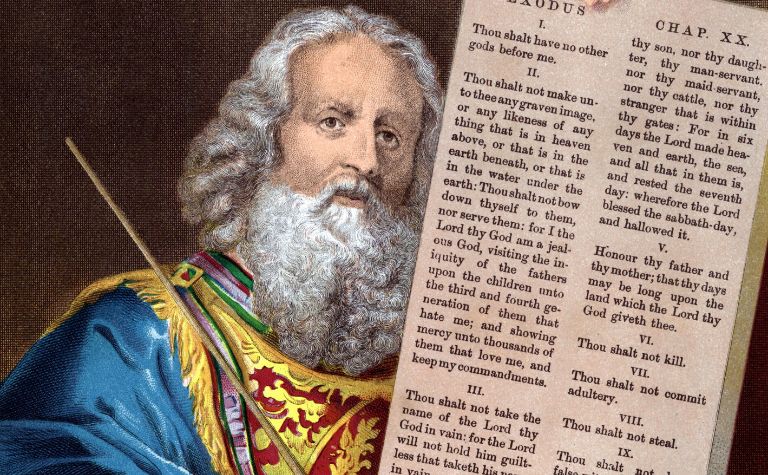Many Bible readers love the story of Moses. It starts when his mother and Pharaoh’s daughter save him from death as an infant. It continued when God called him to lead the Israelites out of the Promised Land. And it ends when his people are on the brink of the Promised Land. Yet to fully understand Moses, readers must know about his background, including his tribe of origin.
Moses was from the tribe of Levi in the nation of Israel. Moses’ father and mother were both from the Levites, according to his birth story in the book of Exodus. The tribe consisted of descendants of Levi, the third son of Jacob and Leah. During Moses’ ministry, he designated it as the priestly tribe.
What does Exodus reveal about Moses’ mother and father? What family within the tribe of Levi did Moses come from? How did the Levites show themselves to be on God’s side during one of the most tragic events in Israelite history? What does the New Testament say about Levites? Keep reading to learn the answers to these questions and others.
Also, Moses’ death is unlike anyone else’s in the Bible. Discover how old Moses was when he died to get more insight into his legacy.

Moses’ Parents Were Levites
Moses’ birth story starts with the Bible’s revelation of his father and mother’s tribe of origin, foreshadowing the future role to which God would call him. “Now a man from the house of Levi went and took as his wife a Levite woman,” and “the woman conceived and bore a son” (Exod. 2:1-2a).
Israel’s spiritual leaders came from the tribe of Levi
Before the passage reveals the boy’s name to be “Moses” (cf. 2:10), it ensures the reader that he has the proper qualifications to be the nation’s intercessor.
Exodus commentator Douglas Stuart explains “that Moses was a chosen child from the only proper tribe for his future calling, fully in compliance with the law that God had not yet revealed to Israel but would reveal within Moses’ lifetime.”
Thus, Exodus 2:1 informs readers that Moses had the prerequisites for his role. Stuart continues, “In other words, the verse assures the reader that Moses was prequalified for the service God later gave him, even in advance of the revelation that would make that qualification necessary.” [1] Later in Exodus, when Moses is an adult, he assigns the tribe of Levi a unique ministerial task (more below).
Moses’ mother and sister save his life
After informing readers of Moses’ parents’ tribe, the story mentions the unique circumstances surrounding his birth, which initially required his mother to hide him from the Egyptian authorities and then later put him in the path of Pharaoh’s daughter to keep him safe (Exod. 2:2-10).
The Bible doesn’t mention Moses’ parents’ names until it lists his genealogy. “Amram took as his wife Jochebed his father’s sister, and she bore him Aaron and Moses, the years of the life of Amram being 137 years” (Exod. 6:20).
Amram and Jochebed had two other children, Aaron and Miriam, who were older than Moses. Exodus 6:20 mentions Aaron.
However, the book doesn’t refer to Miriam until the nation is on the other side of the Red Sea and she is leading the Israelites in praise and worship (Exod. 15:20). Like Levi was the third-born child to Jacob and Leah (Gen. 29:34; 35:23), Moses was the third-born to his parents.
Moses’ genealogy lists “the sons of Levi” (Exod. 6:16). Israelite tribes consisted of clans or large family units. The Levitical families included the “Gershon, Kohath, and Merari” (Exod. 6:16). Moses’ family belonged to the Kohathites, who were the descendants of the second son of Levi (Gen. 46:11).
Also, Moses’ family plays a unique role in his story. Many readers want to know more about what the Bible says about Moses’ wife, including if he had more than one.

Moses Appointed the Tribe of Levi to Ministry
The story of when many Israelites worshipped a golden calf idol is one of the saddest events in Moses’ ministry and Israel’s history (Exod. 32:1-6). Consequently, God intended to destroy the nation due to their sin, but Moses intervened and petitioned God, asking him to show them mercy.
Moses said, “Remember Abraham, Isaac, and Israel, your servants, to whom you swore by your own self, and said to them, ‘I will multiply your offspring as the stars of heaven, and all this land that I have promised I will give to your offspring, and they shall inherit it forever.’ And the Lord relented from the disaster that he had spoken of bringing on his people” (Exod. 32:13-14, ESV).
The Levites stand with Moses
Many Israelites participated in worshipping the golden calf idol, including Moses’ older brother, Aaron (Exod. 32:1ff). Others, like Joshua, stood with Moses, demonstrating faithfulness to God and courage among an unruly people that proved to be a foretaste of his leadership after Moses’ death (Deut. 34:9).
Like Joshua, the Levites stood with Moses. At the time of the golden calf idolatry, when there was anarchy in Israel, Moses said to the nation, “Who is on the Lord’s side? Come to me.”
In response, one tribe stepped forward to stand with Moses and, more importantly, declare they were on God’s side. “And all the sons of Levi gathered around him (Exod. 32:25-26).
The Levites kill the idolators
While later in history, priests had a reputation for peace, the Levites’ first responsibility under Moses following the golden calf idolatry was to carry out God’s judgment.
Moses said, “Put your sword on your side each of you, and go to and fro from gate to gate throughout the camp, and each of you kill his brother and his companion and his neighbor.” 3,000 men died that day (Exod. 32:27-28).
Moses then declared, “Today you have been ordained for the service of the Lord, each one at the cost of his son and of his brother, so that he might bestow a blessing upon you this day” (Exod. 32:29).
The New International Bible Dictionary explains, “Their selection and appointment were rewards for their faithfulness to the Lord in a time of great moral declension.” [2]
Israel’s priests came from the tribe of Levi, yet not all members carried out that role. In other words, all priests were Levites, but not all Levites were priests.
Also, names in the Bible often have special meanings. Learn what the name Moses means to get more understanding of his life.

The Levites After Moses
The role of the Levites changed when Israel entered the Promised Land. They would remain priests, but their job description was different.
For example, they didn’t need to carry the Tabernacle anymore because they weren’t traveling. Instead, it would be stationary, and eventually, the Temple would replace it.
When Israel entered the Promised Land after Moses’ death, the Levites didn’t receive geographical territory like the other tribes. Instead, they lived in 48 designated cities.
Levites aren’t as prominent in David’s narrative but occasionally appear, such as when one dies for neglecting his ministerial responsibilities (1 Chron. 13:7-10; 15:12-15).
In addition, the Bible mentions other Levites at the time in a positive light, like Asaph, who wrote some of the Psalms (cf. Psa. 50; 73-83).
Levites in the New Testament
The New Testament mentions Levites in a few passages. For example, in Jesus’ parable of the Good Samaritan, a Levite ignored the person in need before the Samaritan helped him (e.g., Luke 10:32).
One of the most important passages about Levites in the New Testament is in Hebrews. While the writer argues that the Levitical priesthood couldn’t produce perfection in people, it declares that another priest of a different line could, which was Jesus Christ.
Hebrews 7:28 reads, “For the law appoints men in their weakness as high priests, but the word of the oath, which came later than the law, appoints a Son who has been made perfect forever” (ESV).
Also, as told in Exodus, Moses’ birth story includes many fascinating details. Many readers ask who Moses’ mother was and what the Bible says about her.
References:
[1] Exodus by Douglas Stuart. New American Commentary. p. 86.
[2] The New International Bible Dictionary. p. 591.
Related Questions
Moses had one of the most interesting families in the Bible. He was born to Hebrew parents, yet the Pharaoh's daughter raised him. Moses' siblings, Aaron and Miriam, played critically important roles...
Bible readers remember Moses for learning God's name through a burning bush, parting the Red Sea using God's power, and receiving the 10 Commandments from God on Mount Sinai. He is also known for...
